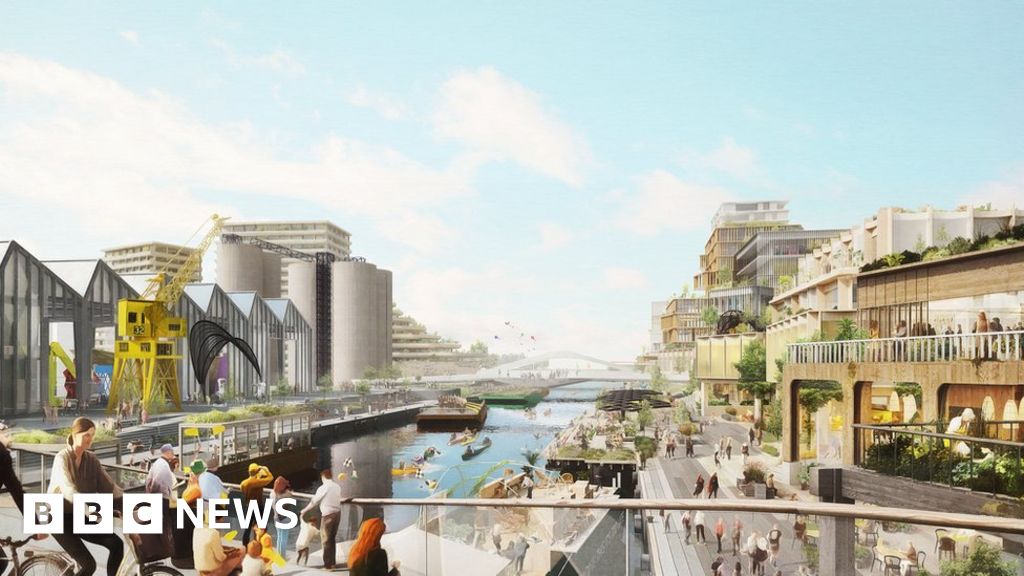Google City Sparks Fresh Controversy

 Image copyright
Sidewalk Labs
Image copyright
Sidewalk Labs
Sidewalk Labs, a sister company of Google, has published its plans to build a smart city in Toronto, sparking fresh controversy.
In a 1,500-word document, the company laid out its ambitions to "improve the urban environment" with a variety of high-tech innovations.
Toronto Waterfront, the body that will decide if the bid is successful, has questioned the proposals.
Meanwhile, some citizens want the plans to be scrapped entirely.
'Lab rats'
The partnership between Sidewalk Labs and Toronto Waterfront was announced in 2017 and the plans to revitalise a disused part of the city was intended to be a model for future urban development.
But citizens expressed concerns about becoming "lab rats" and questioned Sidewalk Labs's motivations in building a city "from the internet up".
A group called simply Block Sidewalk held meetings to express growing concern about having a huge technology company making decisions about city life.
The group has called a meeting on 3 July to discuss the plans.
Sidewalk Labs chief executive Dan Doctoroff remained upbeat about its intentions, saying it wanted to create "something extraordinary" on Toronto's eastern waterfront.
"The proposal aims to create the neighbourhood of the future in the right kind of way with people at its centre and with cutting edge technology and forward-thinking urban design," he said.
'Different perspective'
The Master Innovation and Development Plan outlines a range of innovations - from thermal and advanced energy grids, to factory-based construction of timber buildings, to a dynamic mobility network with heated bike lanes and adaptive traffic lights.
But in an open letter, Toronto Waterside chairman Stephen Diamond's response seemed lukewarm, saying there were key areas where the two organisations had "very different perspectives".
This included the scale of the plan, which he said was "much larger" than the original 12-acre (48,500-sq-m) site, and its proposals to collect and store data, which he said required extra information to ensure they complied with applicable laws.
Sidewalk Labs said it had spent 18 months consulting more than 20,000 Toronto citizens.
From Chip War To Cloud War: The Next Frontier In Global Tech Competition
The global chip war, characterized by intense competition among nations and corporations for supremacy in semiconductor ... Read more
The High Stakes Of Tech Regulation: Security Risks And Market Dynamics
The influence of tech giants in the global economy continues to grow, raising crucial questions about how to balance sec... Read more
The Tyranny Of Instagram Interiors: Why It's Time To Break Free From Algorithm-Driven Aesthetics
Instagram has become a dominant force in shaping interior design trends, offering a seemingly endless stream of inspirat... Read more
The Data Crunch In AI: Strategies For Sustainability
Exploring solutions to the imminent exhaustion of internet data for AI training.As the artificial intelligence (AI) indu... Read more
Google Abandons Four-Year Effort To Remove Cookies From Chrome Browser
After four years of dedicated effort, Google has decided to abandon its plan to remove third-party cookies from its Chro... Read more
LinkedIn Embraces AI And Gamification To Drive User Engagement And Revenue
In an effort to tackle slowing revenue growth and enhance user engagement, LinkedIn is turning to artificial intelligenc... Read more

